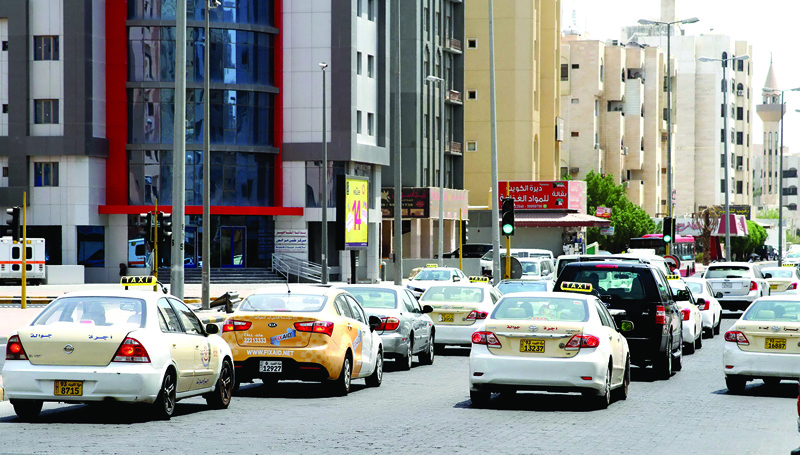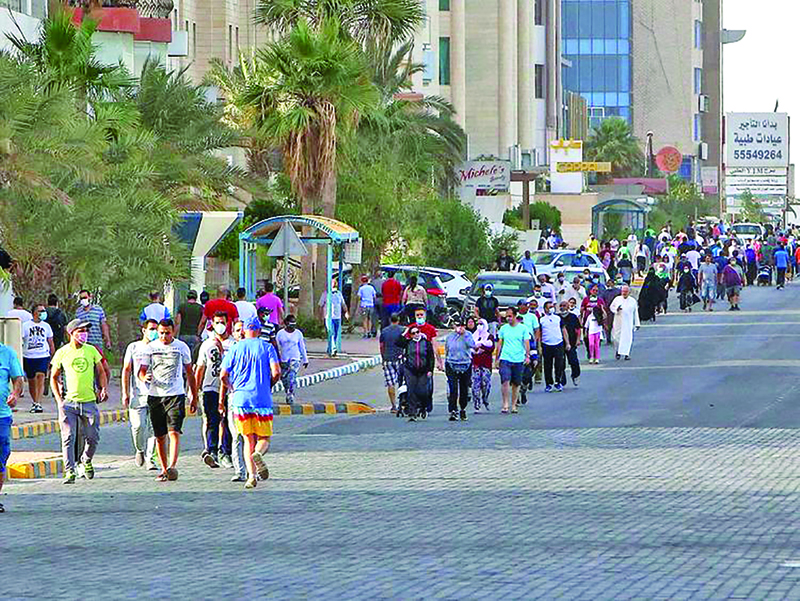
By Chidi Emmanuel
KUWAIT: Badly hit by the coronavirus slump, economic crunch and social distancing, families in Kuwait are scrambling to make ends meet as hardship bites. Paying the rent, bills, food costs and other basic needs have become luxuries many can no longer afford, as people and businesses are beginning to experience major impacts of the havoc that was caused by the deadly COVID-19 outbreak. The pandemic is far more than a health crisis, as it impacts societies and economies at their core - worsening global suffering and jeopardizing lives and livelihoods.
Kuwait, just like other countries across the globe, has seen many businesses collapse, triggering massive job losses and untold hardship. Last week, Finance Minister Barrak Al-Sheetan issued a dire warning that the government is running out of cash and will struggle to pay the salaries of civil servants by November. The minister went on to explain that the country's reserve fund is left with just KD 2 billion ($6.54 billion) in assets and that the government needs KD 1.7 billion every month to function.
The ripple effects of the lockdown and shutdown have had a negative impact on Kuwait's economy, as well as all business sectors - resulting in low revenue generation, retrenchment of staff and slashing of wages. Amid all these economic woes, some people have devised a way to adapt to the new normal.
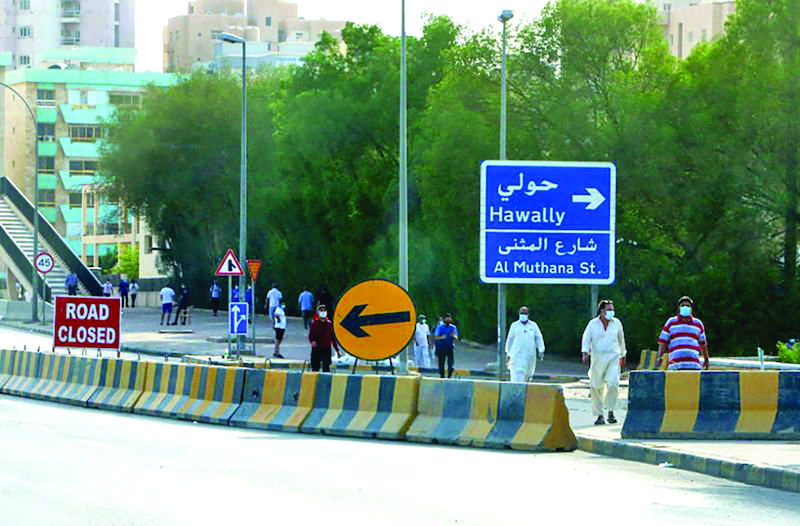
This file photo shows people walking in Hawally, which was placed under total lockdown from May 10 to June 21. 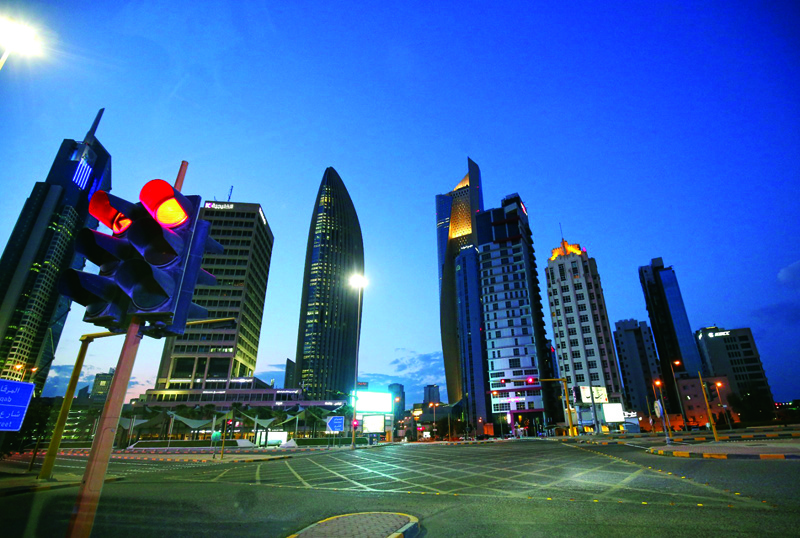
This March 22, 2020 file photo shows empty streets in the business district of Kuwait City moments after a partial curfew went into effect for the first time to curb the spread of COVID-19.
From taking odd jobs to moving to a smaller apartment, residents in Kuwait are beginning to devise means to face the coronavirus era. "I am now working as a nanny in Salmiya to assist my husband. Things actually went from bad to worse after he lost his job as a cashier in a restaurant. Although the pay (KD 150) is not much, it means a lot in these coronavirus times," Constencia Garcia, a Filipina who lives in Mahboula told Kuwait Times, adding that five of her friends are doing similar odd jobs to assist their families.
Some expats have turned into deliverymen, while others have become taxi drivers. "I can neither become a beggar nor a homeless man. I am the breadwinner of my family. During and after the lockdown, I was using my car as a taxi. Although it is illegal, I feel it is better to do that than to beg on the street. It is a win-win situation for me and the passengers because I charge them less than what they pay to regular cab drivers," said Abdulrazzak, a Bangladeshi expat.
Home tutoring
For teachers like Emmanuela, Sylvia and Ahmed, home tutoring has become a lifesaver. "Some parents prefer one-on-one home lessons to online tuitions. Right now, I have eight students and I make almost KD 400 at the end of the month," Sylvia, a nursery teacher, told Kuwait Times as her friend Emmanuela nodded in unison.
Ahmed, an Egyptian maths teacher, said the lockdown has opened new doors for home tutoring. "COVID-19 and the lockdown which followed forced the government to end the academic year abruptly. Our school is not paying us since the lockdown, so home lessons have become a lifeline for me and my family. Some parents feel that their kids tend to get distracted easily, and strongly believe that individual attention is very necessary, while other parents prefer online tuitions," he explained.
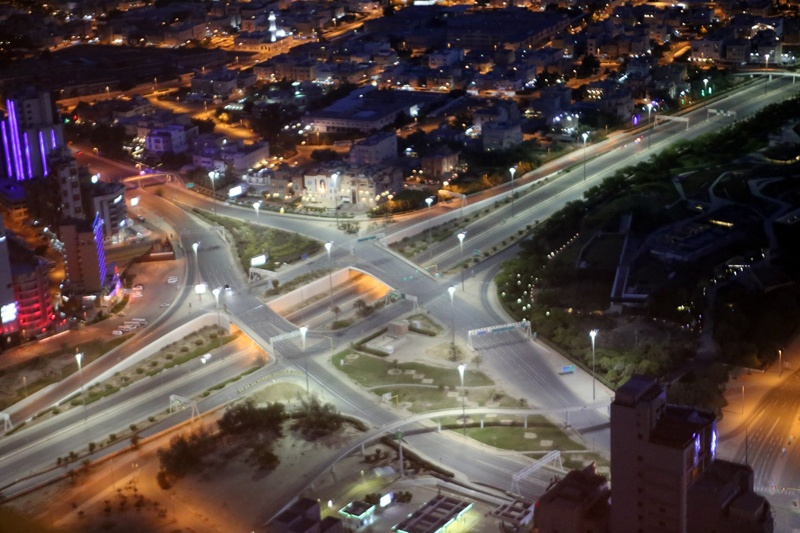
This March 22, 2020 file photo shows empty highways in Kuwait City moments after a partial curfew went into effect for the first time to curb the spread of COVID-19. 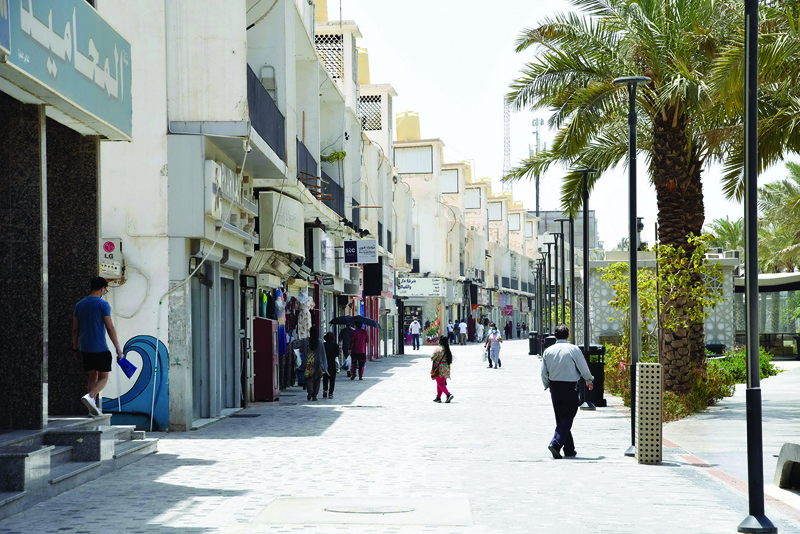
This file photo shows moderate activity at the Barayeh Salem shopping district in Salmiya, otherwise known as Salmiya's 'old souq', a few days after the total curfew was lifted on May 31.
For Martha, an African expat, home catering came to the rescue. "Because there are many Africans in my area, I decided to start a catering business here in Salmiya. I have a WhatsApp group for my customers where I take their orders and display the day's menu. Home food is delicious and affordable. Above all, it has become a means of livelihood for me. I wish I can expand it to a standard African restaurant," she said.
Curtailing expenses and cost-cutting have become a prudent strategy for families struggling to overcome the impact of the pandemic. People are seeking ways to operate as leanly as possible during this crisis. That means cutting all spending that is not essential. Some have resolved to move into a smaller flat, while others share apartments.
"We could no longer afford to pay KD 300 for a two-bedroom flat in Salmiya, so we moved to a one-bedroom flat in Fahaheel for KD 180 per month. Some of our friends who chose to remain in Salmiya decided to share flats. We want our privacy, that's why we moved to a smaller and cheaper apartment even though the place (Fahaheel) is far," Daniel Rodriguez, an Indian expat, told Kuwait Times.
Kuwait had first enforced a countrywide curfew on March 22, from 5:00 pm to 4:00 am, which was later extended to end at 6:00 am. It then moved to total curfew from May 10 to May 30, allowing room for people to walk out for daily exercise between 4:30 pm to 6:30 pm. Following the end of the total curfew, the government announced a five-phase plan for a gradual return to normal life.
The first phase began on May 31, and during which a daily curfew was imposed from 6:00 pm to 6:00 am, which was later reduced to start on 7:00 pm and end at 5:00 am. The second phase started on June 30, and saw the curfew shortened to be between 8:00 pm and 5:00 am, while the third phase began on June 28 and saw the curfew reduced to become between 9:00 pm and 3:00 am. While phase four began on August 18, the curfew is set to be lifted completely on August 30. There is currently no timetable for the start of the fifth and final phase of return to normalcy.
Kuwait had placed several densely-populated areas under total lockdown for various periods throughout all stages of curfew. Mahboula and Jleeb Al-Shuyoukh were first put under lockdown on April 6, followed by Farwaniya, Khaitan, and Hawally which remained under lockdown after the country moved on from total curfew on May 31. The lockdown ended in Hawally and Khaitan on June 21, in Mahboula and Jleeb Al-Shuyoukh on July 9, and in Farwaniya on July 26.
